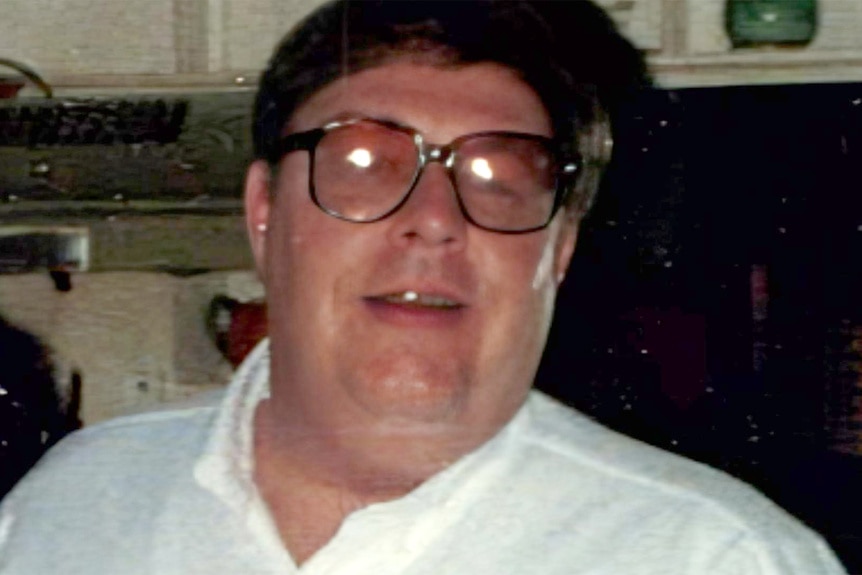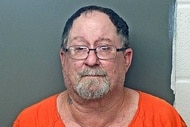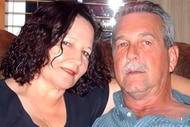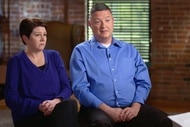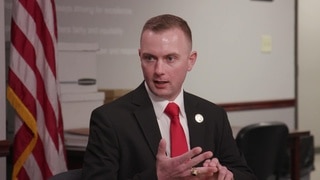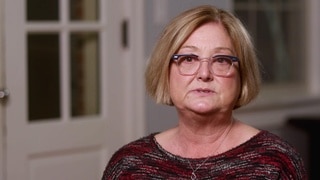Create a free profile to get unlimited access to exclusive videos, breaking news, sweepstakes, and more!
South Carolina Widower Stabbed to Death on Morning of Son’s College Graduation
Community man William "Michael" McCuen sustained 17 stab wounds — including a fatal one to the heart — in an ambush that began while he was asleep in his Anderson County home.
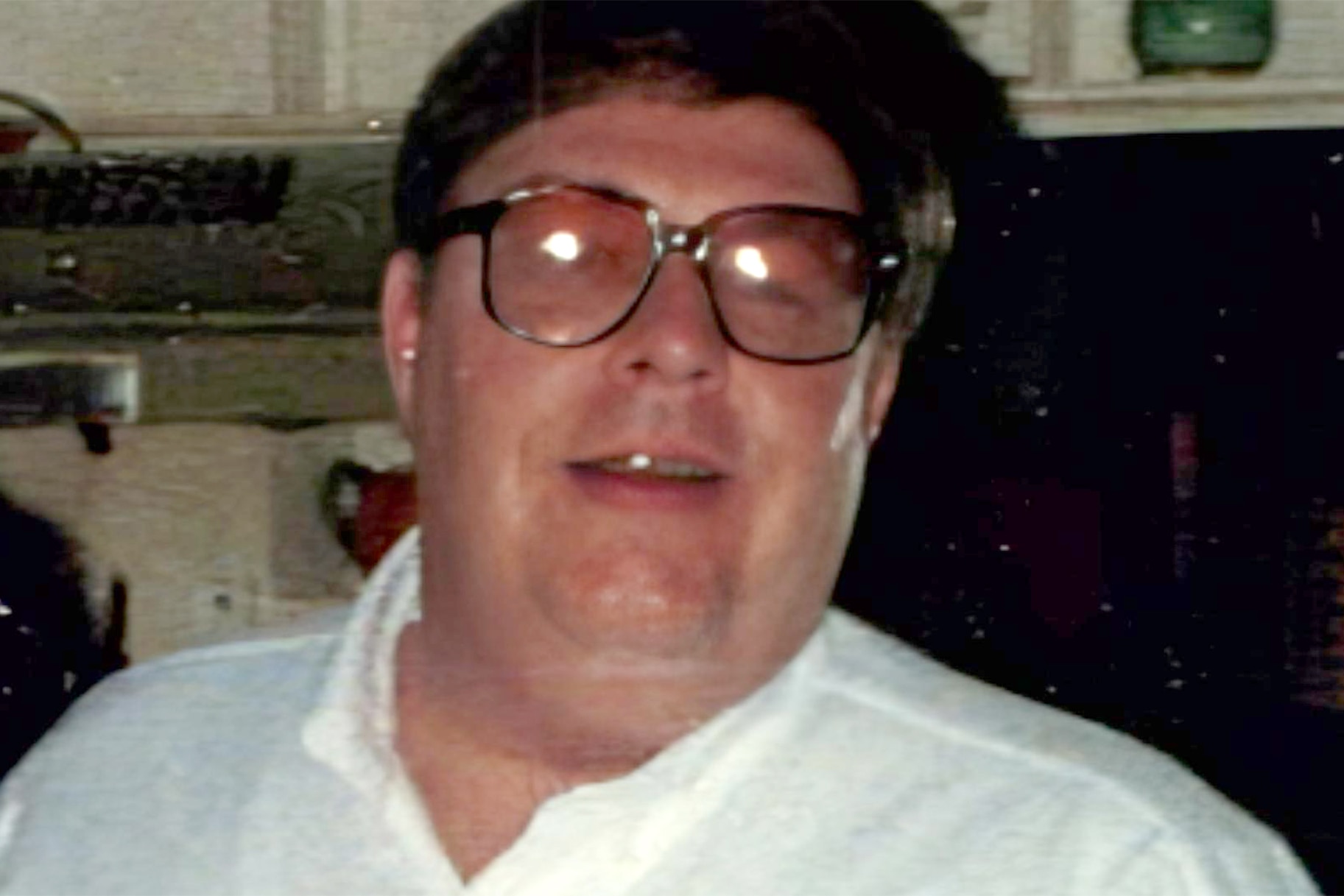
Kelly Siegler and authorities in Anderson County, South Carolina hope to solve the 2000 murder of a well-renowned community man stabbed to death at his home.
Authorities with the Anderson County Sheriff's Office (A.C.S.O) in South Carolina were joined by Kelly Siegler and retired L.A.P.D. cold case investigator Bertha “B” Durazo to get to the bottom of a nearly 25-year-old murder. Would there be enough to push prosecutors to file murder charges?
“After 24 years, Mike and his family deserve justice,” said Siegler.
A.C.S.O. Sheriff Chad McBride, Major Andy Tribble, and Sergeants Michael Branyon Jr. and Kendall Cash hoped to solve the stabbing murder of William “Michael” McCuen, 56, as featured in Cold Justice, airing Saturdays at 8/7c on Oxygen.
The Murder of William “Michael” McCuen
On May 27, 2000, at around 6:30 a.m., then-22-year-old William “Matthew” McCuen found his father dead at his Anderson County home in northwestern South Carolina. It was supposed to be the day of Matthew’s graduation from Furman University, and the son hoped to surprise his father — a Furman University graduate himself — for breakfast.
Instead, Matthew found his father naked, seated and slumped in a flowerbed attached to the rear of the brick home, dead after sustaining 17 stab wounds. It appeared to be a surprise attack that began while Michael slept in bed, though the fatally injured victim managed to get up, make it across the house, and exit the back door, taking his final breaths outside.
Detectives were puzzled since Michael was what Sgt. Cash referred to as a “low-risk” victim, a recently-retired widower. He and his late wife, Bobbie McCuen — who died of breast cancer in 1998 — shared an only child, and Michael maintained strong ties to the rural area.
“He was a community man; he was a member of the West Pelzer Baptist Church; he was the deacon; he was a Sunday School Director,” according to Sgt. Branyon. “He was well-regarded in the community.”
At the crime scene, investigators found Michael suffered a fatal stab wound in the heart. The blood trail proved that after Michael was stabbed in bed, he retrieved a handgun he kept near his bed before making his way outside, though a wound to the hand prevented him from pulling the trigger. He also managed to take the cordless phone from its cradle, though he could not call 911.
Both the phone and gun were found by Michael’s feet, and a broken window by the back door indicated a possible break-in. However, nothing appeared to be disturbed from the home except for a kitchen drawer from where it was believed the killer retrieved the murder weapon.
The bloody kitchen knife was found in the home, but authorities couldn’t glean information from D.N.A. taken from the weapon.
“Based on the level of rigor mortis on Mike’s body, the medical examiner estimated the likely time of death was between 3:00 a.m. and 6:00 a.m.,” Durazo told Cold Justice. “Since nothing was stolen, is it possible that this was a burglary gone wrong or a vengeful act of an unknown enemy of Mike’s?”
The Possible Suspects
Anderson County authorities quickly ruled out several possible suspects early in the investigation.
Soon, investigators turned their attention toward Michael’s son, Matthew, described by most as a “highly intelligent” man and a former high school valedictorian purportedly set to graduate from Furman University. Investigators admitted he was a nice and friendly person.
“By most accounts, Matt had a good relationship with his father, and he had a key to the house, so he wouldn’t have to break a window to get in,” according to Durazo. “But not everything about his story made sense.”
Some “inconsistencies” included Matthew’s statements that he tried resuscitating his father with mouth-to-mouth C.P.R. At some point, he said he “cradled” his father’s dead body and attempted to stop his father’s bleeding. However, a lack of blood transfer onto Matthew’s clothes sparked investigators’ suspicions.
“Later, in interviews, [Matt] admitted that he wasn’t going to graduate,” said Sgt. Branyon.
But Matthew had not told his father that his failing grades doomed his plan to graduate from college.
Matthew’s failure to tell his father about his humiliating news raised a red flag for detectives.
Did Matthew have a motive?
At the time of his death, Michael had just received a “pretty substantial” sum of money after retiring from the unemployment bureau, according to Branyon. He also owned two homes and had about $42,000 in the bank, any of which could have been a motive to harm the widowed man.
Matthew would go on to inherit his late father’s assets, but some wondered if Matthew feared his father planned on transferring his monies to at least one of his romantic partners. Before the murder, Michael added his girlfriend, Patsy Underwood, as a co-beneficiary to a $20,000 retirement fund, she told the Cold Justice team.
“Mike worshipped that boy, he really did,” Underwood told Durazo and Branyon. “I know that Mike would get real aggravated with him, but I don’t know that they ever had any knockout, drag-out fights.”
Underwood, along with Michael’s sister, Barbara Durham, agreed that the father “was having trouble with Matthew” over the years. To drive the point home, Durham recalled a time when Matthew allegedly tackled his father as Michael mowed the lawn, bruising the father’s face.
Durham said Matthew was angry because Michael planned to move a girlfriend into the home, and he “wasn’t gonna have that.”
Colleagues and acquaintances began painting a picture of who Matthew was in 2000: a young man raised to attain greatness under the perfectionism of his parents. Some also recalled him being “devastated” by his mother’s passing and referred to his mood changes and failing grades.
Matthew’s former football coach indicated that Michael wanted his son to follow in his footsteps as a football player, though he was “not outstanding” at the sport.
“To me, his relationship with his parents seemed strained all the time,” said a friend. “They were tough on him.”
Others said Mr. and Mrs. McCuen expected Matthew to have perfect grades — going so far as to be disappointed with a 95 percent test score — and “wouldn’t let Matt have a childhood.”
Authorities learned through family friends that Michael was unaware that Matthew would not be graduating and that he planned to attend the ceremony later on the day he died. But could Matthew's humilation over not graduating have driven Matthew to kill his own father?
Investigators believe the crime scene was staged
Siegler and the others were unable to revisit the former crime scene. However, during a recreation of the scene, the group examined why they believed the killer tried to stage a break-in.
For starters, only two kitchen drawers had been opened, including “the farthest drawer,” which was believed to be where the assailant collected the murder weapon, according to Siegler.
“It tells us that the killer didn’t bring the weapon with him; he armed himself while he was in the house,” said Branyon. “And the fact that nothing else is disturbed, it suggests that he was familiar with the house.”
Photographs of the crime scene — as obtained and published by Cold Justice — showed a bloody crime scene leading from Michael’s bed to the back door. Detectives accepted that Michael made it outside and dropped the phone and gun by his feet before eventually dying against the house.
“For Mike to have been stabbed 17 times indicated that it was personal, and the killer was full of rage,” Durazo told Cold Justice.
Based on the open kitchen drawer and nothing being stolen from the home, it was increasingly likely that the victim knew his killer. Additionally, if someone had broken the window to gain entry, how did it not wake Michael, since he was “dead asleep” when the attack began?
Authorities focused much of their attention on the window. Whoever broke it did so to make it appear as though there was a burglar who reached inside and stretched their arm around a wall panel to reach the inside lock. However, the window was only partially broken, leaving a jagged hole-like break, whereas it was more plausible that someone would have broken the entire window to reach the lock and avoid injury. It was more believable that the killer had a key and staged a fake break-in with the sloppy broken window.
“In addition to that, glass is on top of the blood, so it suggests that the window was knocked out after [Michael’s] coming through bleeding,” according to Sgt. Branyon.
Investigators eventually ruled out the possibility of a random killer, and they turned their focus on Matthew.
A circumstantial case moving forward
The case against Matthew McCuen was circumstantial. Was it enough to build a case? Cold Justice investigators remained concerned that Matthew kept a façade of being a soon-to-be college graduate, never revealing to anyone that that was no longer the case.
“Everybody knew how smart he was, so that would have been hard and embarrassing to have to tell people,” an unnamed friend told Cold Justice.
Durazo and Branyon attempted to visit Matthew at his home — where Michael McCuen was found dead 23 years earlier — but there was no answer at the door. Matthew eventually called them back on the phone, and while he was friendly with the investigators, he advised he’d “be in touch” once he contacted his attorney.
Matthew McCuen has not been charged in connection to his father’s homicide. Sgt. Branyon told Barbara Durham, the victim’s sister, that the sheriff’s office’s plans to bring the case before Anderson County prosecutors.
Durham thanked the Cold Justice investigators, stating her brother’s murder “didn’t have to happen."
“I’m sad, but in the long run, I think it’s the best thing for everybody to find out,” said Durham. “I’m glad there’s still people out there that care and wanna do the right thing by everybody. That’s really something to be thankful for.”
Watch all-new episodes of Cold Justice, airing Saturdays at 8/7c on Oxygen.
